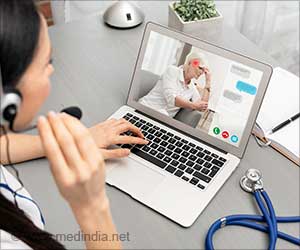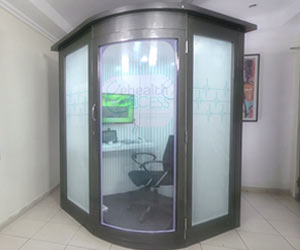Highlights :
- The NMC regulates medical education and medical professionals in India
- NMC releases Draft Registered Medical Practitioner Professional Conduct Regulations 2022
- The board has invited views from stakeholders on these stipulated changes and the last date for which is June 22
Read More..
Preamble
A draft document for public consultation has been released last month by National Medical Commission (NMC) regarding Professional Conduct Regulations (2022) and includes Telemedicine Practice Guidelines Version 2 for Registered Medical Practitioner. This is likely to have far reaching changes in the way doctors practice both physical and remote teleconsultations. The disciplines of medicine and clinical practice have undergone a complete facelift, to cater to the marginalized and underprivileged populace, with telemedicine and teleconsultation measures. The issuance of the Telemedicine Practice Guidelines 2020 (TPG) brought upon standardization and regulation of the telemedicine industry, a hitherto adverse proposition for the regulatory authorities.Highlights of the Draft Regulation Regarding Professional Conduct Regulations (2022) including Telemedicine Practice.
The issuance of the National Medical Commission Registered Medical Practitioner (Professional Conduct) Regulations, 2022 (Draft Regulations) to update the erstwhile Indian Medical Council (Professional Conduct, Etiquette, and Ethics) Regulations, 2002 was essential to revise the regulations in view of the novel digitized modes of patient interaction and consultation. Below are the gists of changes that are to be included in the new enactment.
Practice of Medicine
The Draft Regulations specifically exclude RMP (registered medical practitioner, under NMC) from practicing more than one system of medicine. RMPs are not allowed to practice another system of medicine simultaneously. The certificates issued by an RMP must contain the details of the training, duration, skills/competency, and the work done. The onus of establishing the veracity lies on the RMP.Digitize Patient Records
In addition to impositions at the level of the healthcare institutions, every self-employed RMP must completely digitize patient records within 3 years from the date of publication of the regulations, in absolute compliance with the applicable laws of India and as per the proforma laid down by NMC.Social Media
The Draft Regulations prescribe the key principles, and behavioral obligations of an RMP on social media. It is pertinent to note that the NMC Regulations do not prescribe any definition for “social media”, and we may be constrained to the definitions provided under IT Act and allied rules, to rely upon the definition of social media.Training of RMPs
The Draft Regulations make considerable modifications to the TPG and prescribe Continuous Professional Development (CPD) training to RMPs desirous of conducting telemedicine practice in India; the earlier prescribed timeline of seeking a course certification within a period of 3 years from the date of notification of the TPG 2020, has been done away with. It now stresses on how the RMPs must familiarize themselves with the guidelines, as well as appreciate the shortcomings of the practice of telemedicine.Establishing Relationship & Consent
The TPG now mandates an RMP to commence consultation with provisioning an introduction (details of name, qualifications, area of specialty) and the location of their affiliate medical establishment. The Draft Regulations further require an RMP to obtain the patient signature or thumb impression with the date of the signature, on the informed consent document shared with the patient. Explicit consent must be recorded in any form — physical, audio, video, graphics, electronic, text — this must be stored by the RMPs. A template with respect to informed consent has also been provided within the draft regulations.Follow-Up Appointments
The specifics of a follow-up consultation have also been amended, wherein the patient may seek an appointment for a follow-up consultation after the expiration of 6 months, provided that the RMP has advised the patient to seek an appointment with him, between the period of 6 and 12 months from the date of the initial consultation. There is an additional leeway provided to the platforms for affording “follow-up consultations” to the same patient, where the newly assigned RMP/available RMP is comfortable in comprehending the patient’s medical condition after having been provided with adequate information (details of the condition and reports of all relevant investigations) by the patient. We see reliance being placed upon the professional judgment of the RMP who is available. The retention timelines for online consultation remain unchanged from what has been already prescribed for in-patient and out-patient records.Duties of RMPs
The ethical considerations and duties imposed upon RMPs for the practice of telemedicine specifically call out the primary RMP as the one responsible for the care and coordination of the patient, with the distant medical team/professionals at 1.1.(2). The amended TPG clarify on the range of advisories which may be provided by an RMP during a tele-consult, and allow for advice on immunization, exercise, personal and household hygiene practices, mosquito control and so on.At Annexure 3, the renewed TPG provides a template that must be adhered to by the platform, as a patient information sheet. This includes the information which is already captured within the terms and conditions, and consent form (in some cases) of platforms which own, operate and manage teleconsultation platforms.
Prescription of Drugs
Further, the amended TPG now permits the RMP to prescribe any drugs, depending on the type of consultation, [with the exception of Schedule X drugs] during a tele-consult, basis their professional opinion and judgment.Telemedicine Service Providers
The amended TPG now requires telemedicine service providers to establish protocols for referrals to emergency services, a hitherto unregulated aspect of clinical examination and practice in the erstwhile TPG. Further, RMPs must not participate in telemedicine platforms that provide ratings by the patient or others including reviews, advertisements, and promotions of RMPs any means. As a consequence, it will become incumbent upon the digital platforms to remove such reviews, ratings that may be associated with a particular RMP listed on their platform.The Draft Regulations do not merely require the platforms to conduct due diligence of the RMPs qualifications and registrations, but now specifically require that the onus of ensuring all the information regarding the RMP and all their qualifications that have been mentioned on their portal have been authenticated and are registered with the National Medical Register or their respective State Medical Councils is wholly placed on the owners and administrators of the technology platform.
Advertisement of Services
There is a clear embargo on advertisement of any RMPs, and promotion, including by means of manipulation of algorithms, search engines, and so on.Artificial Intelligence
The Draft Regulations reiterate that AI-/ML-based counseling and prescription are not permissible; additionally, they clearly state that any correspondence in this regard with the patient shall be delivered directly by the RMP. The Draft Regulations continue to use the same template for prescriptions during online consultations.Section that Lacks Clarity
Unfortunately, the document still does not speak of interoperability, which has been spoken about since the first iteration of Electronic Health Records Standards was released in 2013, by MoHFW. We can only assume that the same is left to be determined by the Ayushman Bharat Digital Mission scheme.Overall, the current document is an improvement on the somewhat outdated Indian Medical Council (Professional Conduct, Etiquette and Ethics) Regulations of 2002. All the stakeholders are invited to send their expert comments by 22nd June of 2022 to National Medical Commission (www.nmc.org.in). The complete document is available on the site. Use the link to access the document: https://www.nmc.org.in/MCIRest/open/getDocument?path=/Documents/Public/Portal/LatestNews/NMC%20RMP%20REGULATIONS%202022%20Draft%20Final%20YM.pdf
Source-Medindia










